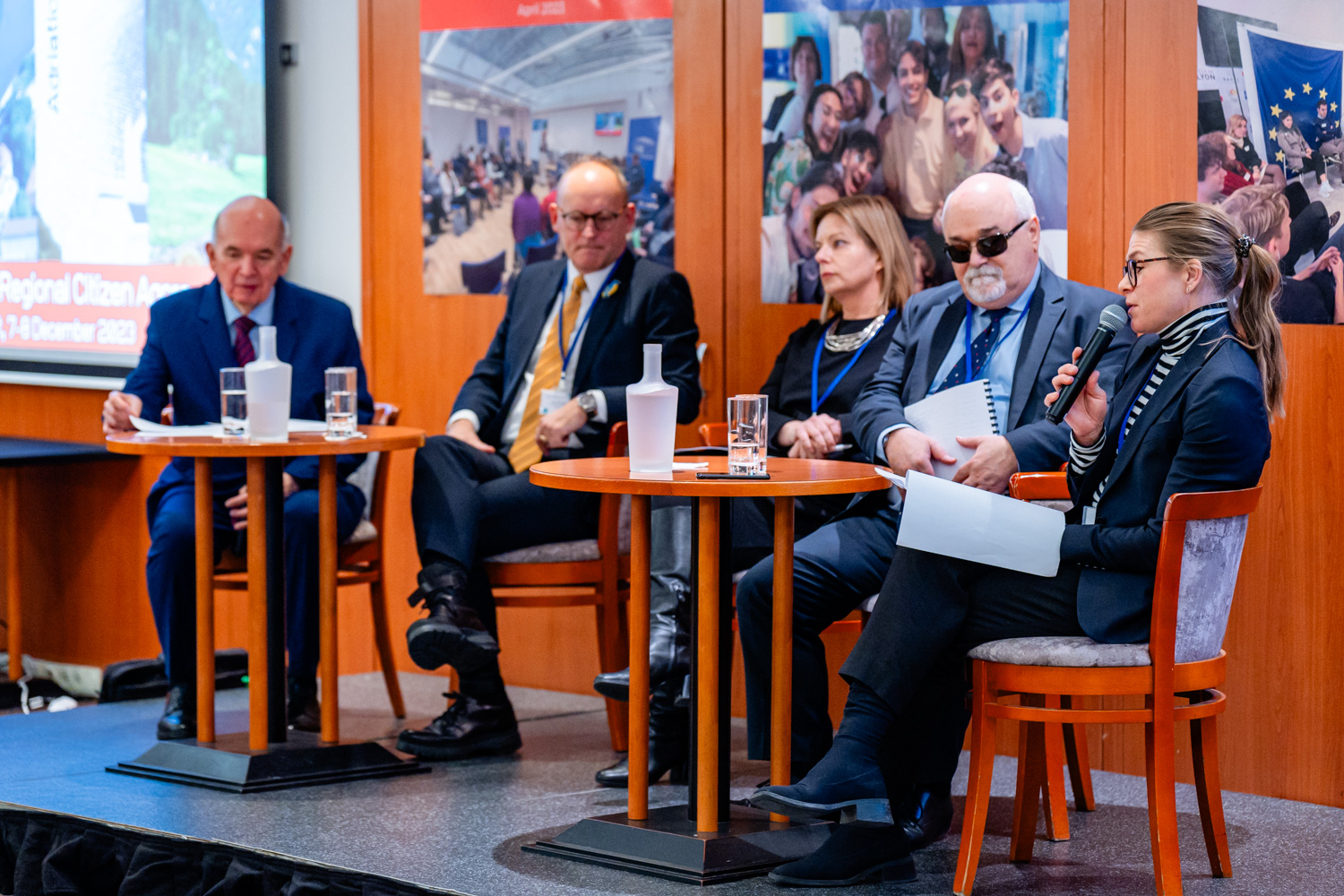The First Macro-Regional Citizen Agora at a glance
Budapest, 7-8 December 2023
The Budapest Message
Participants of the First Macro Regional Citizen Agora gave their unanimous support to a document proposing the elaboration and adoption of an EU macro-regional civil strategy.
What is the purpose of this proposal?
To empower citizens and their organisations, local communities across the four macro-regions and beyond to creatively participate in and contribute to the design and implementation of EU macro-regional strategies.
You will find the text of the adopted document covering civil commitments and recommendations on policy and operational levels here.
On the basis of the policy guidelines a macro-regional civil network is established and progress is reviewed at the 2nd Macro-Regional Citizen Agora to be held in Brussels in December 2024.
Report from the panel dicussion
What is the real importance of macro-regional strategies, and why is it worth involving civil society organisations? Is there an “appetite” in a top-down structure for a bottom-up civil approach? These are some of the questions that were discussed in the panel discussion “The macro-regional idea in service of a democratic and citizen-centred Europe” with the participation of Johan Magnusson, Team Leader, European Commission, DG Regio, Ioannis Vardakastanis, European Economic and Social Committee ECO Section President, Hedvig Morvai, European Director, Erste Foundation and Anna Hagström, Prime Minister’s Office, Sweden.
Key messages from the panel discussion
- EU macro-regional strategies are important because they link major European policy perspectives with local and regional situations and stakeholders. Key issues include the green and digital transformations, as well as social transition. Macro-regional strategies bring these particular challenges down to specific areas, helping to shape and implement activities in these areas influencing daily life of citizens.
- Bringing in civil society in the implementation of macro-regional strategies on a partnership basis will lead to a better and democratic process, and it will also help create a better decision-making. There is a justified demand to enter into structured dialogues with CSOs whose representatives can participate in the various governance structures.
- We need to develop a culture of participation and cooperation, which must be acknowledged, strengthened and nurtured. The emerging serious challenges demand cooperation: it is a not a question anymore, it is a necessity. There needs to be a massive reaching out and dissemination. Awareness-raising leads to increased citizen ownership feeling.
- A promising new tendency is the organised involvement of young people in macro-regional activities. There are supportive youth structures in three macro-regions.
- The European Economic and Social Committee, the voice of organised civil society on European level is ready to promote citizen participation in a macro-regional context.
- More efforts should be made to strengthen macro-regional strategies so that they can be real trend-makers, build confidence and promote European values – especially with respect to the social and economic cohesion of the regions, as well as the integration of neighbouring countries. It is also essential to strengthen the link between the green, digital and social transitions, to shift the focus from producing more to producing better, thus avoiding overproduction.
- Civil society needs to position itself in the debate about the future of EU Cohesion Policy, the discussion is taking place now leading to the release of the 9th Cohesion Report of the Commission in spring 2024. The active and creative participation of CSOs in the macro-regional strategies and cohesion policy is what European democracy needs. It is a matter of revitalising our democracy a few months before the European Parliamentary elections.
- 19 EU Member States are part of macro-regional strategies, and eight countries are not. When the Council of the European Union discussed its conclusions related to the European Commission’s 4th Report on the implementation of macro-regional strategies the importance of the strategies was underlined together with the usefulness of involving civil society and youth, it was a united front, everyone agreed and the Swedish Presidency played a pivotal role in making it happen. The Council also recognised the importance of macro-regional strategies as a means to bring local and regional concerns and voices to mainstream European processes.
- The more collaborative forms we have on all levels between different stakeholders, the stronger the EU macro-regional strategies and also the EU will get.
